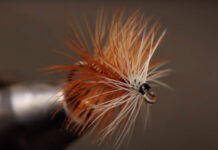A prominent Napa Valley vintner has been ordered to pay $5.1 million in damages to a winery he once owned, after his partners alleged in a lawsuit that he used company funds to pay for personal expenses like private jets, home renovations and luxury cars.
Tuck Beckstoffer, son of the famous grape grower Andy Beckstoffer, must also dissociate from the winery, meaning he will give up his 30% ownership, according to an arbitration agreement written by retired federal judge Elizabeth D. Laporte.
The winery, now called Amulet Estate, has previously been known as Tuck Beckstoffer Wines and Dancing Hares Vineyard. Beckstoffer was originally the sole owner of the business, but in 2016 he brought on partners from the firm Generation Capital, which loaned $19 million in order to finance the purchase of a ranch and a vineyard.
Beckstoffer, who declined to comment on the record, drew a $450,000 yearly salary, court documents show. But in 2019, Matthew Cribbins — president of Generation Capital and a partner in the winery — discovered evidence that Beckstoffer had been improperly using the winery’s money for personal use, according to the filings. (Cribbins and the other Amulet partners also declined to speak on the record.)
Court records detail a long list of extravagant expenses, such as roughly $100,000 in landscaping at Beckstoffer’s home, $34,278 in interior design at his home, $165,980 on personal trips including fly-fishing excursions, hunting expeditions and gun shows, $39,000 on semiautomatic rifles and ammunition, and $59,003 on a family membership to luxury resort Meadowood Napa Valley.
The Amulet Estate wines sell for $85-$300 per bottle.
Courtesy Margaret NissenBeckstoffer spent $370,836 in winery funds, his partners alleged, “to transform a 1966 Ford pickup truck into a ‘heavily modified’ Baja racing vehicle” with a 900-horsepower engine. Geoff Beattie, the Generation Capital CEO and another winery partner, agreed to help fund the project, but claimed that Beckstoffer concealed the scope of the expense. Ultimately, the winery sold the refurbished truck for $82,800, and now asks Beckstoffer to repay the loss of $288,036.
Other allegations include that Beckstoffer made a deal with a private jet company in which he would provide $350,000 worth of winery “products and services” in exchange for 35 hours of private jet time.
In some instances, court records suggest that Beckstoffer deliberately falsified documents to make it look as if personal expenses were being used for the winery. For example, his partners say that Beckstoffer doctored invoices for a $45,560 security gate to make it appear as if it were being installed at the winery property, when it was actually installed at his home.
The filings also allege that Beckstoffer stole more than $200,000 worth of property from the winery, including a $60,000 John Deere tractor. His partners claimed that, when questioned about the whereabouts of the tractor, Beckstoffer “lied” and told them that it had burned in the 2017 Atlas Fire. “Mr. Beckstoffer later posted a photo on Instagram of himself and his son riding the tractor at his home with the caption ‘Sunday Funday.’ … When confronted with the photo, Mr. Beckstoffer returned the tractor,” the filing reads.
Laporte, the judge, wrote that “Beckstoffer’s conduct was reprehensible and warrants punitive damages.” The other partners, she wrote, “proved that Mr. Beckstoffer misappropriated Winery funds and assets consistently over the course of several years, sometimes through elaborate fraudulent schemes and at others through outright theft and easily disproven lies.”
While Beckstoffer controlled the winery, it averaged $4.7 million in annual operating expenses, according to testimony cited in the filings by Nathaniel Dorn, Amulet’s COO. In 2022, its operating expenses are expected to be $1.8 million.
Beckstoffer was fired in October 2020 from his position as manager and CEO for cause, the arbitration agreement shows. That December, the winery announced a name change from Tuck Beckstoffer Wines to Amulet Estate.
After the partners initially filed a lawsuit, which was then routed to arbitration, Beckstoffer filed counterclaims against them. He eventually abandoned some of these claims, and the rest were denied by the arbitrator.
The partners calculated Beckstoffer’s net worth to be $8.3 million, which includes his equity in Amulet Estate.
This is not the first time that Beckstoffer has been embroiled in a legal dispute with a business partner. In 2011, Darrell Spence sued him in Los Angeles County Superior Court for breach of contract and fiduciary duty, fraud and other complaints. Spence said that he had invested more than $682,252 with Beckstoffer to start new wine companies. Spence expected a percentage of the business, as well as repayment. In his lawsuit, Spence said he never received any shares of the business, nor repayment, and that Beckstoffer dissolved one of the companies, 75 Wine, and transferred the assets to Tuck Beckstoffer Wines. Spence eventually filed to dismiss his suit.
The Amulet partners have not yet determined what will happen to Beckstoffer’s 30% interest in the company now that he’s been ordered to dissociate. The arbitration agreement is binding.
Esther Mobley is The San Francisco Chronicle’s senior wine critic. Email: emobley@sfchronicle.com
Credit: Source link































